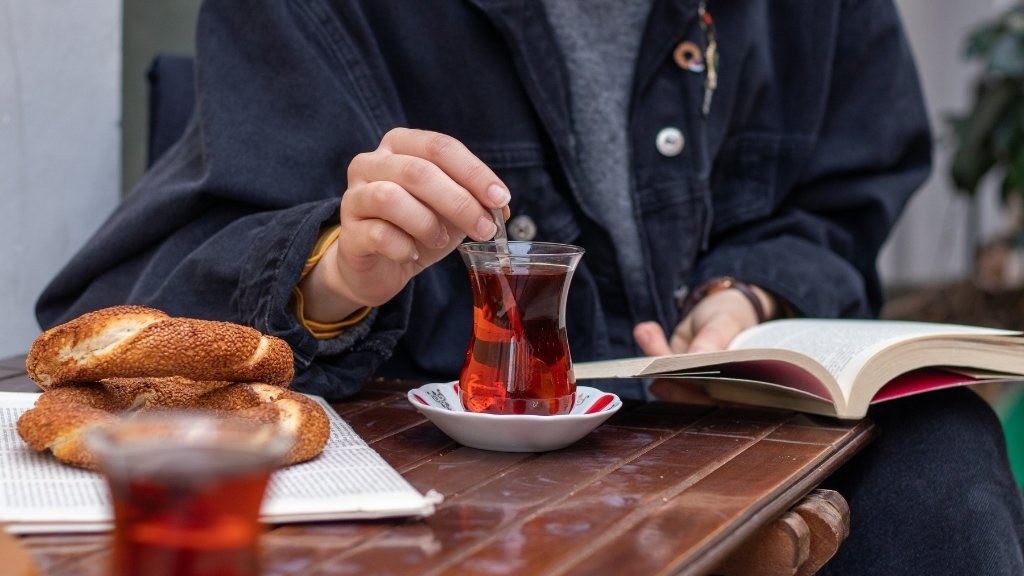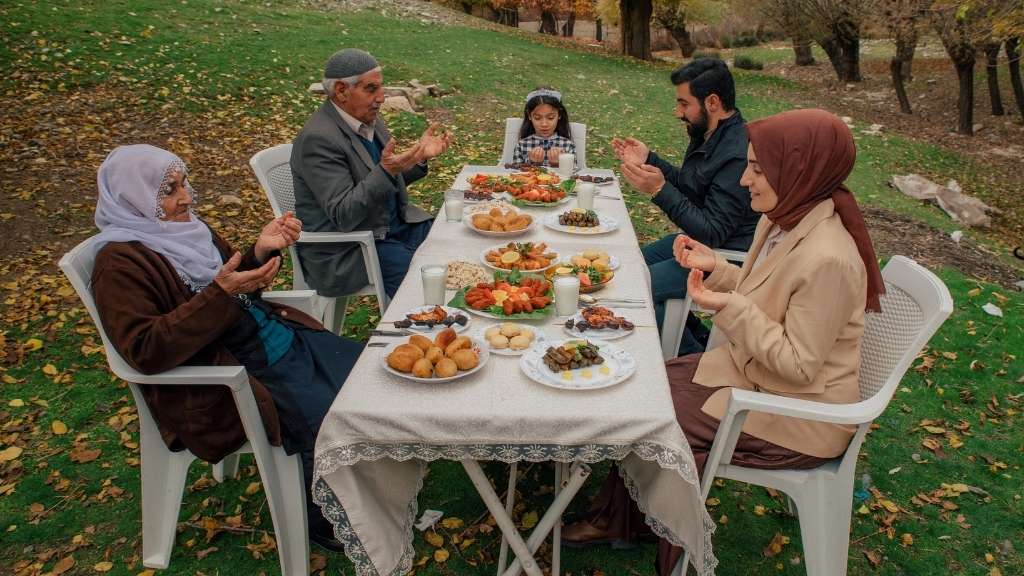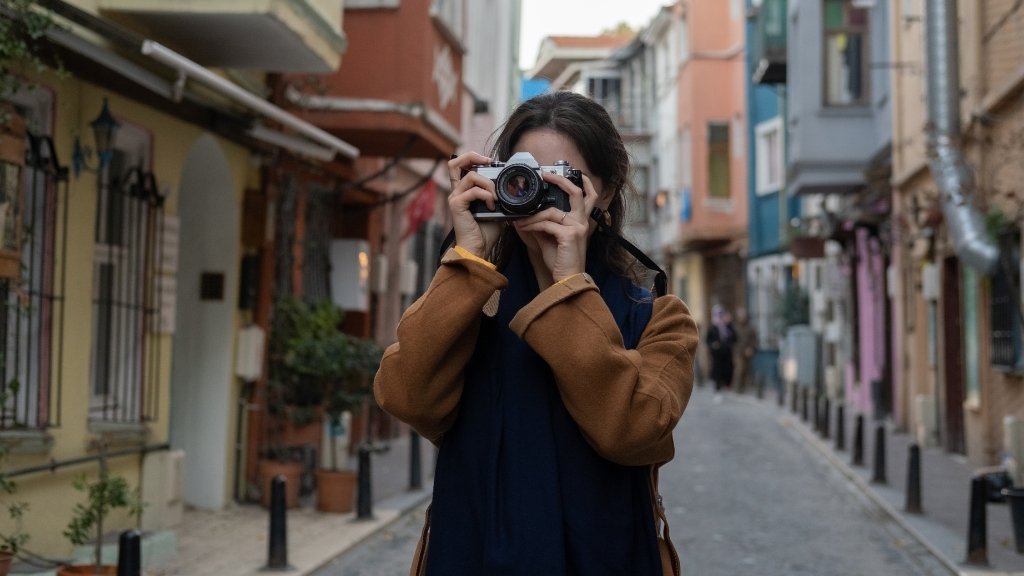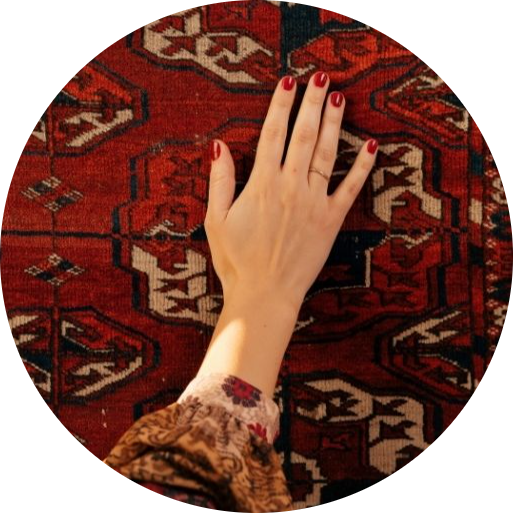Imagine being invited to a family dinner in Turkey. The table is full of delicious dishes, everyone is chatting warmly, yet not a single fork is lifted until the eldest guest begins. That quiet pause isn’t just tradition – it’s a window into Turkish etiquette, where respect, hospitality, and community values guide every interaction.
From the bustling streets of Istanbul to business meetings in Ankara or a casual tea shared in a small Anatolian village, understanding Turkish customs is more than good manners – it’s the key to building genuine connections. By learning how to greet, dine, and interact respectfully, you’ll not only avoid cultural missteps but also experience the warmth and richness of Turkish culture on a deeper level.
Understanding Turkish Etiquette Basics
Why Etiquette Matters in Turkish Culture
In Turkey, etiquette is more than just good manners – it’s the heartbeat of daily life. From the way families gather around the dinner table to the warm gesture of offering a guest a glass of Turkish tea, these traditions reflect values like respect, hospitality, and community. A visitor sipping tea in a lively Istanbul café or sharing bread in a quiet Anatolian village will quickly notice that etiquette is not about formality, but about creating warmth, trust, and a sense of belonging.
The Role of Religion, Family, and Community
- Religion in Daily Etiquette: Islam plays a central role in shaping Turkish customs. From modest clothing choices to food practices such as avoiding pork and alcohol, religion influences many aspects of social interaction. Respecting prayer times, dietary preferences, and traditional greetings is a crucial aspect of observing Turkish etiquette.
- Family as the Core of Society: Family is the foundation of Turkish culture, and elders hold a deeply respected position. Decisions often involve family input, and small gestures—such as allowing an elder to enter a room or greet first—carry profound cultural significance. To connect authentically, showing deference to elders is essential.
- Community Spirit and Generosity: Life in Turkey thrives on generosity and neighbourly bonds. It is common to see strangers share a meal, neighbours support each other, and hosts go above and beyond to make guests feel at home. This spirit of hospitality not only defines Turkish etiquette but also leaves visitors with lasting memories of kindness and connection.
Greetings & Politeness in Turkey
Handshakes, Hugs & Cheek Kisses
In Turkey, greetings are more than a formality – they reflect warmth, respect, and closeness. In professional or formal settings, a handshake is the most common way to greet someone, especially when meeting for the first time or in a business context. But once you step into family or social circles, the atmosphere changes. Among friends and relatives, greetings are more affectionate: men often hug or exchange cheek kisses, while women usually greet each other in the same way. These gestures are less about tradition and more about building trust and showing genuine connection.
Using Titles & Honorifics
Addressing people properly is an integral part of Turkish etiquette. Titles show respect and recognition:
- Bey = Mr. (used for men)
- Hanım = Ms. (used for women)
- Abi = Older brother (respectful term for men, even if not family)
- Abla = Older sister (respectful term for women, even if not related)
Adding these honorifics after a person’s first name not only sounds polite but also acknowledges the role of age, hierarchy, and social standing in everyday life. For example, addressing someone as Ahmet Bey or Elif Hanım demonstrates both familiarity and respect.
Respect for Elders
The most valued rule of Turkish manners is showing respect to elders. Always greet the oldest person first, wait for them to extend their hand before shaking it, and let them begin speaking or eating before others. These small yet powerful gestures carry deep cultural significance, reflecting the values of family, community, and respect for tradition.
❓How do you greet someone in Turkey?
In formal settings, greet with a handshake and use the appropriate title (like Ahmet Bey or Elif Hanım). Among friends and relatives, greetings often include hugs or cheek kisses. Always remember to greet elders first, as a sign of respect.
Turkish Hospitality & Tea Etiquette
The Ritual of Turkish Tea & Coffee
In Turkey, tea (çay) isn’t just a drink – it’s a daily ritual and a valid symbol of friendship and hospitality. Whether you’re visiting a family home, shopping at a bazaar, or even waiting at the barber, chances are you’ll be offered a steaming glass of tea. Saying yes is considered a polite way to accept warmth and connection, while refusing without a reason may be perceived as discourteous. For special occasions or when welcoming guests, Turkish coffee is also served, renowned for its intense flavour and distinctive tradition of preparation and presentation.

Hosting Guests at Home
Stepping into a Turkish home feels like being welcomed into a second family. Shoes are usually removed at the door, and hosts quickly offer Turkish tea, apple tea, coffee, or homemade dishes. Guests are treated with the utmost care, not as visitors but as honoured members of the household. This tradition reflects the deep cultural value placed on generosity, respect, and community bonds.
Offering Food & Drinks – The Polite Dance of “No”
One of the most charming customs of Turkish hospitality is the way food and drinks are offered. Guests often decline once or twice out of humility, only to finally accept after the host insists. This ritual isn’t about hesitation – it’s a graceful exchange that showcases the guest’s modesty and the host’s generosity. Accepting, even if just a little, is a way of honouring the effort and strengthening the bond between host and guest.
❓What is tea etiquette in Turkey?
In Turkey, it’s customary to accept tea when offered, even if only for a sip. Refusing without explanation may be perceived as impolite, as tea is often associated with friendship, generosity, and hospitality.
Dining Etiquette in Turkey
Sharing a meal in Turkey is never just about food – it’s about family, respect, and the deep cultural traditions that bring people together. Whether you’re enjoying dinner in a Turkish home or dining out at a local restaurant, knowing the proper table manners helps you connect with people and avoid misunderstandings.

Seating & Respect for Elders
In Turkish culture, respect for elders is deeply ingrained in daily life, and mealtimes are a strong reflection of this. The oldest person at the table is always seated first, and no one begins eating until they take the first bite. This simple gesture carries a profound meaning: honouring wisdom, life experience, and family tradition. If you’re visiting Turkey, following this custom is one of the easiest ways to show cultural awareness and respect.
Table Manners to Remember
Turkish dining etiquette highlights politeness, sharing, and community.
Here are some essential customs to keep in mind:
- Use your right hand: Passing dishes or eating with the right hand is preferred, especially in formal or traditional settings.
- Bread at the center: Fresh bread is always placed in the middle of the table and shared by everyone, symbolizing unity.
- Finish what’s on your plate: Taking only what you can eat is a polite way to show gratitude. Leaving food behind may be seen as wasteful or disrespectful.
These small but meaningful traditions turn every meal into a shared experience rather than just an individual act of eating.
Dining at Home vs Eating Out
Hospitality is a cornerstone of Turkish life, evident both at home and in restaurants. When invited to a Turkish home, expect generous portions and multiple helpings. Even if you’re full, accepting at least a little extra is seen as a sign of appreciation for the host’s effort. At restaurants, it’s common for the host to pay the bill. Splitting it equally – although common in many Western countries – is less common in Turkey and may be perceived as impolite in traditional settings.
❓Is It Rude to Refuse Food in Turkey?
Yes, it can be considered impolite to repeatedly refuse food. Since Turkish hospitality is centred on generosity, declining too many offers may unintentionally offend the host. The polite approach is to accept at least a small portion, even just a taste, as a sign of gratitude and respect.
Business Etiquette in Turkey
Relationships Come Before Deals
In Turkish business culture, success begins with relationships rather than paperwork. Before discussing any contract, it’s common to spend time over small talk, a cup of Turkish tea, or even a shared meal. These moments of hospitality are not a side note – they are the very foundation of trust. Many Turkish professionals prefer to work with people they know personally, so showing patience and genuine interest can open doors to lasting partnerships.

Thoughtful Gift-Giving
Gifts in Turkey are not mandatory in business, but they are a thoughtful way to leave a good impression. The key is to keep it simple and meaningful. A modest item that reflects your own country, such as local crafts or specialty food, is valued far more than an expensive or flashy gift. It communicates goodwill and appreciation without creating a sense of obligation, making it a respectful gesture in professional settings.
Dress Code & Professionalism
First impressions are crucial in Turkey, and wearing professional attire is a key way to show respect. Men are expected to wear suits and ties, while women often opt for elegant yet modest outfits. A conservative dress code signals seriousness and reliability, helping you align with the expectations of Turkish business circles. By presenting yourself well, you not only show professionalism but also build credibility from the very first meeting.
📊My Observation: Hospitality as a Business Advantage
During my stay, a European company successfully established a long-term partnership with our company in Turkey by prioritizing hospitality and cultural respect before engaging in formal negotiations. Instead of rushing into deals, they prioritized relationship-building – visiting regularly, sharing meals, and showing genuine interest in local traditions. This trust-first strategy paid off, resulting in contracts that were not only stronger but also more sustainable than those that would have been achieved through a purely transactional approach.
Social Norms & Everyday Etiquette in Turkey
Public Behaviour & Modesty
When spending time in Turkey, you’ll notice that everyday public behaviour balances warmth with respect. Families and friends often show great affection for one another. Still, public displays of affection between couples—such as kissing or hugging—are less common, especially in more conservative regions.
Modesty in clothing is also essential. In big cities like Istanbul or Izmir, fashion can be modern and relaxed. Still, when visiting mosques or rural towns, it’s best to dress conservatively. A lightweight scarf for women and longer clothing for both men and women show cultural awareness and earn respect from locals.
Body Language: Small Gestures, Big Meaning
In Turkish culture, non-verbal communication often speaks louder than words. A few gestures carry specific meanings that travellers should know:
- Raised eyebrows with a nod – This means “no,” not “yes,” which can be confusing at first.
- Crossed arms or pointing – Often viewed as rude or confrontational. An open posture is more effective in conversations.
- Hand over the heart – A warm, genuine gesture that shows gratitude or sincerity. Many Turks use it while thanking someone.
Learning these subtle cues helps visitors build stronger connections and avoid awkward moments.
Respect for Religion & Mosques
For many visitors, stepping into a Turkish mosque is a memorable cultural experience. But it’s essential to follow the proper etiquette:
- Remove your shoes before entering.
- Dress modestly – women may cover their hair with a scarf, and both men and women should avoid shorts or sleeveless tops.
- Ask before taking photos, especially during prayer times.
By observing these customs quietly and respectfully, you’ll not only show good manners but also experience the hospitality and warmth that Turkish culture is known for.
Gender Interactions & Cultural Sensitivity
Turkey’s social customs vary depending on location. In modern urban areas, men and women interact freely in workplaces, cafes, and gatherings. However, in more traditional communities, social life may be more gender-segregated.
A helpful approach is to mirror the local environment:
- In cities, a handshake or casual greeting is standard.
- In conservative areas, avoid physical contact unless the other person initiates it.
This kind of thoughtful awareness ensures that you remain respectful while still connecting authentically with locals.
Tourist Etiquette in Turkey
Common Mistakes Tourists Should Avoid
In Turkey, even the most minor details often carry significant meaning. A few common slip-ups travellers make include:
- Wearing shoes indoors: Turkish homes are seen as a clean, private sanctuary. Always remove your shoes at the door, unless your host instructs you otherwise.
- Ignoring mosque etiquette: Tourists are welcome to visit mosques, but it is essential to observe modest dress, quiet behaviour, and respect. Women typically cover their heads, while men should avoid shorts or sleeveless shirts.
- Refusing tea or food too quickly: Hospitality is central to Turkish culture. Turning down tea or a meal right away may seem dismissive. Even a small sip or bite shows appreciation and builds goodwill.
Photography Etiquette
Turkey is a photographer’s dream, but sensitivity is essential. It’s fine to capture landscapes, bazaars, or historic sites, but always ask before photographing people—especially women or in religious spaces. Respecting privacy demonstrates cultural awareness and helps prevent uncomfortable moments.

Simple Ways Tourists Can Show Respect
Even small gestures can create lasting positive connections:
- Learn a few Turkish words: Saying “Merhaba” (hello) or “Teşekkürler” (thank you) goes a long way.
- Follow local customs: Observing dining traditions, greetings, or how locals behave in public shows you value their culture.
- Avoid sensitive topics: Steer clear of criticizing religion, politics, or Atatürk – the country’s founding father. These are deeply respected subjects in Turkish society.
❓What should you avoid doing in Turkey?
Tourists should avoid keeping shoes on indoors, dressing casually in mosques, or rejecting offers of tea and food. Criticizing religion, politics, or Atatürk is also seen as highly disrespectful.
Gift Giving & Special Occasions in Turkey
Bringing Gifts When Visiting Homes
In Turkey, hospitality is a way of life, and guests are always treated warmly. If you’re invited to someone’s home, it’s considered impolite to arrive empty-handed. A small gift, such as sweets, pastries, or fresh flowers, is a thoughtful gesture that families truly appreciate. Many travellers also like to bring something from their own country, a local specialty or souvenir, which Turks often see as both personal and respectful. During my own visits, I’ve noticed that even a simple box of chocolates can open the door to conversation and put a smile on the hosts’ faces.
Weddings, Funerals & Festive Traditions
- Weddings: Turkish weddings are lively, family-centred celebrations marked by music, dancing, and a rich culinary tradition. Guests traditionally give gold coins, jewelry, or money as gifts. These aren’t just symbolic; they provide support for the newlyweds as they begin their life together.
- Funerals: On the other hand, are sombre and quiet occasions. Wearing modest clothing, staying respectful, and offering condolences without unnecessary small talk are the best ways to show sensitivity.
Ramadan & Religious Celebrations
During the holy month of Ramadan, it’s essential to be mindful of fasting hours. Eating, drinking, or smoking in public during the day may be seen as disrespectful. If you’re invited to an evening iftar meal, consider it a special honour. Sharing this meal with locals is one of the most authentic ways to experience Turkish culture and generosity. Beyond Ramadan, other religious holidays are marked with hospitality. Offering food, sweets, or small gifts during these times is a meaningful way to show respect and join in the spirit of community.
Practical Tip Box: 5 Quick Etiquette Tips in Turkey
Visiting Turkey is an unforgettable experience, and being aware of a few everyday customs can help you connect with locals on a deeper level. These practical etiquette tips are simple, but they go a long way in showing respect and making your time in Turkey feel more authentic.
- Greet Elders First: Respect for elders is a cornerstone of Turkish culture. Whether you’re entering a family home or meeting a group, always acknowledge the oldest person first. This small gesture immediately shows good manners and earns warm smiles in return.
- Accept Tea or Food Graciously: Hospitality is at the heart of Turkish life. If you’re offered tea (çay) or food, say yes – even if it’s just a small portion. Accepting is a way of honouring your host, while refusing may unintentionally seem dismissive. Personally, I’ve found that sharing a glass of strong black tea often leads to some of the best conversations.
- Dress Modestly in Religious Settings: When visiting mosques or sacred sites, modest dress is essential. Women typically cover their heads and shoulders, while men should avoid shorts. Carrying a light scarf is a practical tip many travellers find useful. This respectful approach ensures you feel comfortable while honouring local traditions.
- Bring Small Gifts When Visiting Homes: Turks value thoughtfulness, so arriving with a small gift is always appreciated. Popular choices include sweets, pastries, or fresh flowers. If you bring something from your own culture – such as specialty chocolates or coffee – it often sparks curiosity and leads to great conversation.
- Respect Traditions & Avoid Controversial Topics: Turkish people take pride in their history, religion, and national identity. Avoid sensitive discussions around politics, religion, or Atatürk (the country’s founder). Sticking to lighter topics, such as food, travel, or daily life, makes interactions enjoyable and worry-free.
Frequently Asked Questions
What are the dos and don’ts in Turkey?
Do: Always greet elders first, accept tea or food when offered, and wear modest clothing in religious places. These gestures are seen as signs of respect and help you connect positively with locals.
Don’t: Bluntly refuse hospitality, walk into a home with your shoes on, or criticize religion and national values. Such behaviour is viewed as disrespectful in Turkish culture.
How should I dress in Turkey?
In large cities like Istanbul, a modern-casual style is perfectly acceptable. But when visiting mosques or conservative areas, modest clothing is expected. Women typically carry a scarf to cover their heads in religious spaces, and men should refrain from wearing shorts. Dressing respectfully shows cultural awareness and ensures a smoother, more welcoming experience.
Is tipping common in Turkey?
Yes, tipping is appreciated, though not obligatory. In restaurants, a 5–10% tip is the norm for good service. In cafés, it’s common to round up the bill to the nearest dollar. Small tips are also welcomed by hotel staff, taxi drivers, and tour guides, as they recognize it as a gesture of gratitude.
How do Turkish people show respect?
Respect is often shown through hospitality, greetings, and honouring elders. Offering tea to guests, shaking hands or kissing on both cheeks, and standing when an elder enters a room are all everyday customs. These small acts reflect the deep value Turks place on kindness and community.
What is considered rude in Turkish culture?
It’s considered rude to point at people, refuse offers abruptly, or show impatience in social interactions. Interrupting conversations, speaking loudly in public, or rejecting hospitality without explanation can also be perceived as offensive. A polite and calm approach is always the safest way to build good relationships.
Final Thoughts
At its heart, Turkish etiquette is not about following strict rules; it’s about understanding the values that shape daily life: respect for elders, genuine hospitality, and a deep sense of community. From sharing tea in a village home to navigating business meetings in Istanbul, these customs are living reminders of how culture and kindness go hand in hand.
For travellers, showing awareness of these traditions is more than politeness – it’s the key to building trust and forming meaningful connections with locals. A simple gesture, such as greeting elders first, dressing modestly in a mosque, or accepting a glass of tea, can transform an ordinary trip into a richer, more culturally meaningful experience.
By approaching Turkey with openness, curiosity, and respect, you not only avoid cultural missteps but also experience the genuine warmth that defines this country. And that is the beauty of Turkish manners – they not only guide interactions, but also open doors to friendship, hospitality, and lifelong memories.

Hi, I’m the heart behind Turkish Aura. I lived in Turkey for 10 beautiful years, where I fell in love with its tea, traditions, and soulful way of life. This blog is my way of sharing real stories, cultural wisdom, and personal experiences to help you feel the true essence of Turkish culture – just like I did.Thank you for being here, and love you!


